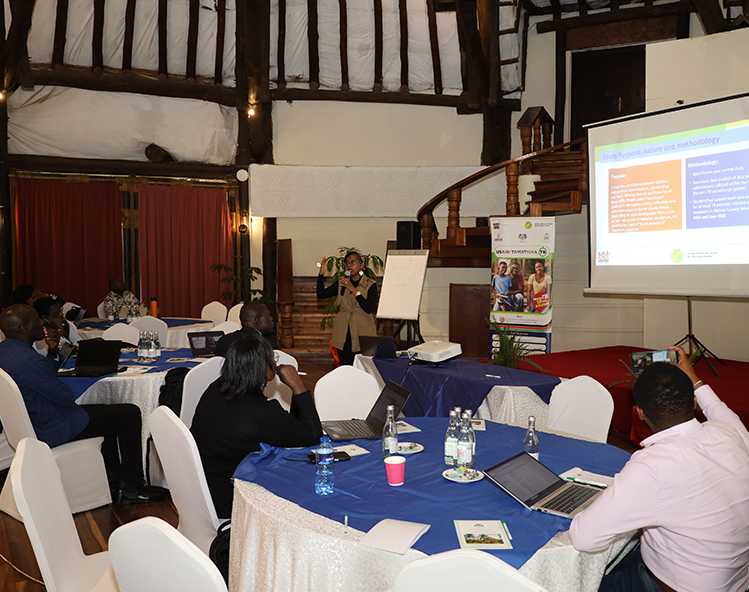Nairobi, Kenya – A recent presentation by Dr Nkirote Mugambi-Nyaboga shed light on the critical issue of TB treatment interruption among men, a group that bears a disproportionate burden of the disease in Kenya. Men account for nearly 60% of all TB cases, and their higher likelihood of interrupting treatment continues to drive poor health outcomes, ongoing transmission, and TB-related deaths.
The session highlighted several factors influencing treatment adherence among men with TB in Nairobi County:
Key Takeaways
-
Malnutrition Matters: Men with poor nutrition were 23% more likely to interrupt treatment compared to those with adequate nutrition.
-
Adverse Drug Reactions: Experiencing side effects such as rashes, joint pain, or gastrointestinal issues made patients up to 10 times more likely to discontinue treatment.
-
Alcohol Use: Alcohol consumption nearly doubled the risk of treatment interruption.
-
Geographical Influence: Men living in informal settlements such as Mathare, Kamukunji, and Embakasi faced significantly higher risks of interrupting treatment compared to those in Westlands.
-
Clinic Visits: Encouragingly, patients who completed all scheduled clinic visits were less likely to abandon treatment.
Why This Matters
Interrupting TB treatment poses serious consequences, including drug resistance and higher mortality. The presentation underscored the need to address both medical and social barriers — from nutrition and side effect management to reducing the impact of alcohol use and improving access to patient-friendly services.
The discussion concluded with a call for patient-centered approaches, particularly for men in informal settlements and those working in the informal sector, who often face difficult choices between seeking care and earning a livelihood.

